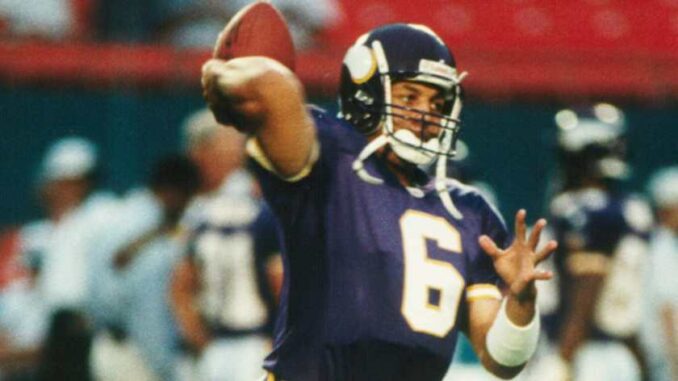
Jay “Sky” Walker’s induction into the Black College Football Hall of Fame (BCFHOF) Class of 2025 represents a full-circle moment—honoring a career defined by perseverance, excellence, and leadership at both HBCU and professional levels.

Walker’s journey began at Long Beach State, but after its football program folded, he transferred to Howard University in 1992. In just two seasons, Walker rewrote the record books: two-time All‑MEAC selections, 1993 MEAC Offensive Player of the Year, and quarterbacking Howard to its first undefeated season, MEAC title, Black College National Championship, and an I‑AA playoff berth—highlighted by 3,324 passing yards and 223 completions, both ranking among the conference’s best ([hubison.com][1]).
Drafted by the New England Patriots in the seventh round of the 1994 NFL Draft, Walker spent four seasons across New England and the Minnesota Vikings. Despite minimal playing time, his journey was emblematic of HBCU quarterbacks striving for recognition in pro football ([hubison.com][1]).
Since retiring, Walker has remained a steadfast advocate for Black college football. Joining ESPN in 2005, he has served as a college football analyst—particularly on HBCU broadcasts—using his platform to elevate the visibility of historically Black programs ([espnpressroom.com][2]). He’s also built a second career in public service and business: a former Maryland state delegate since 2007 and the CEO/president of Walker Financial Services ([espnpressroom.com][2]).
Reflecting on the honor, Walker sees it as validation—not just for himself but for a lineage of talent at HBCUs. “You have to know where you’re going… what’s your Plan A, Plan B, Plan C,” he has said, emphasizing adaptability and preparation for life beyond football—a message he imparts to players today ([espn.com][3]).
Walker’s induction—which will be officially celebrated on June 7, 2025, at the Atlanta ceremony and highlighted at the HBCU Legacy Bowl halftime—cements his legacy not only as a standout athlete but as an inspirational leader poised to shape the future of Black college football.
Leave a Reply